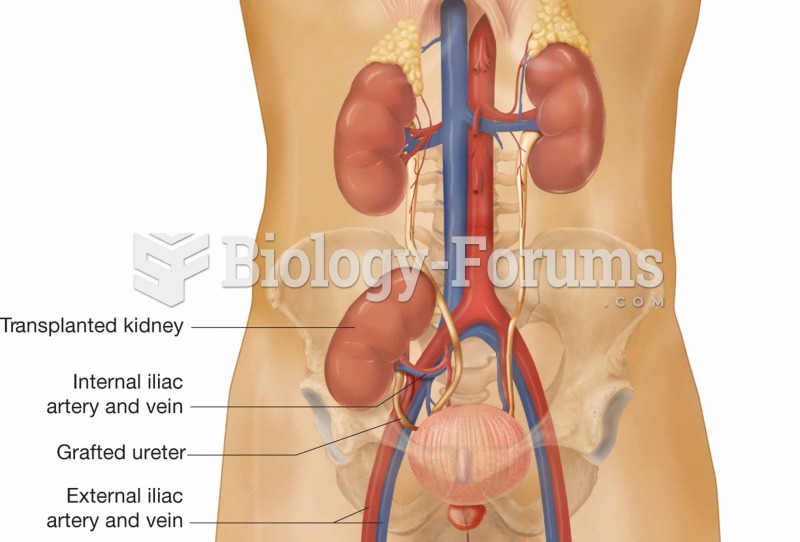|
|
|
The toxic levels for lithium carbonate are close to the therapeutic levels. Signs of toxicity include fine hand tremor, polyuria, mild thirst, nausea, general discomfort, diarrhea, vomiting, drowsiness, muscular weakness, lack of coordination, ataxia, giddiness, tinnitus, and blurred vision.
Urine turns bright yellow if larger than normal amounts of certain substances are consumed; one of these substances is asparagus.
Medication errors are more common among seriously ill patients than with those with minor conditions.
Eat fiber! A diet high in fiber can help lower cholesterol levels by as much as 10%.
Approximately one in four people diagnosed with diabetes will develop foot problems. Of these, about one-third will require lower extremity amputation.







